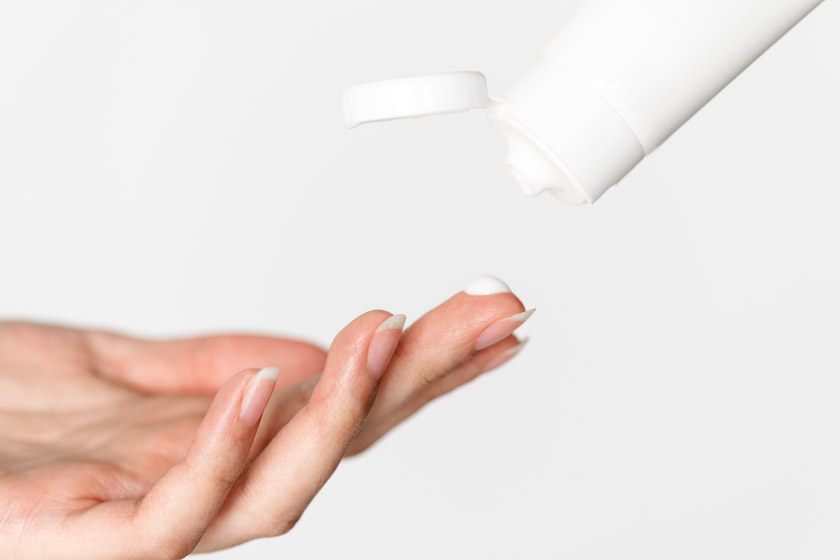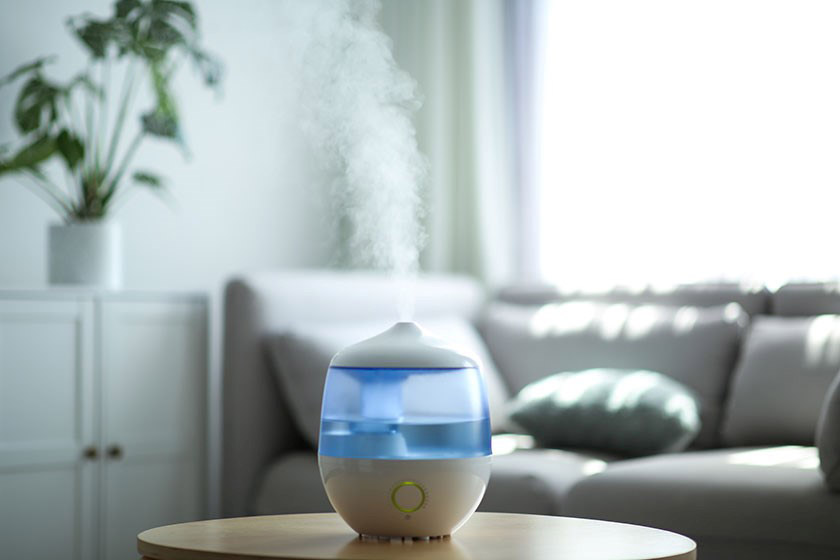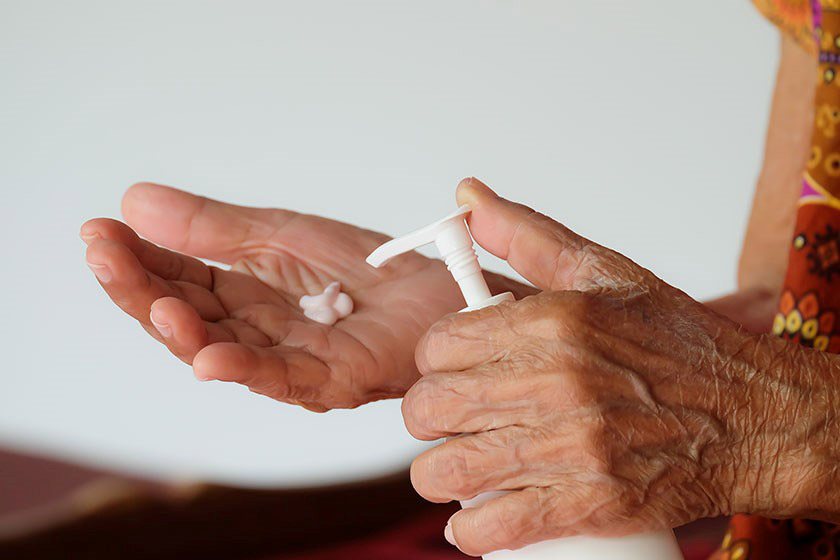
Essential Winter Skin Care Tips That You Should Follow
Skin care for seniors becomes more important as temperatures drop. When exposed to cold air for an extended period, the result can be dry, flaky skin or other problems. These skin problems can become itchy, painful, and negatively affect your appearance if you don’t use additional moisturizers and protect against the elements. You may also experience skin irritation. As well as the frigid outdoor elements, winter can also cause the air in your home to become dry. Humidity in the house typically drops when the furnace is running. The loss of moisture can aggravate skin problems even further. But there’s no need to worry. With a few changes and small steps, you can avoid skin dryness and have healthier skin.
What Skin Care Is Good for Winter?
Due to the dry winter air, if the skin on your face seems especially sensitive or irritated, you may want to simplify your skin care routine. It is important to note that serums, toners, and other beauty treatments work better if your skin’s moisture barrier is healthy. You can gradually incorporate other treatments and ingredients into your routine once you feel confident that your skin’s moisture barrier is healthy. You can adopt extra care like what was introduced in the “best coconut oil face masks recipes” article; you can have healthier skin. Even though many seniors have their skin regimen, there are additional ways to protect their skin during colder months. Here are some of the best ways to do so.
- Read More: 10 Best Coconut Oil Face Masks Recipes
1. Stay Hydrated

Drinking a sufficient amount of water daily is by far one of the essential dietary requirements for our bodies, and it is crucial to our survival. Drinking water is also a necessary part of skin care for seniors since it keeps your skin hydrated. Water is something we think about regularly in the warmer months. Still, it’s equally crucial to stay hydrated in the cold weather, even if we’re not as thirsty. Water in the system keeps our skin moist, which minimizes the appearance of fine wrinkles in the long run.
2. Moisturize Regularly
During the winter, moisturizers are great for preventing dehydration. It is imperative to keep your skin hydrated during the cold months since the dryness and stiffness of your skin will make it more susceptible to infections. Always use the best moisturizer for elderly skin that contains all-natural ingredients and best suits your skin type. When you wash your face, hands, or body, you remove the natural oils from your skin. Therefore, it is vital to moisturize your skin every time you wash it, especially in winter.
3. Wear Sunscreen

While it may be colder outside, your skin may absorb more ultraviolet rays during the winter. You should always wear sunscreen when you are outdoors, no matter how the weather is. With sunscreen, you will protect yourself from skin cancer and sunburn. Furthermore, you will prevent wrinkles and other signs of premature ageing. In winter, wear SPF30 minimum if you are out in bright but cold climates and reapply the sunscreen regularly just like you do in summer.
4. Take Care When Bathing
Although taking a long, steamy shower may be tempting, it’s not that healthy when it comes to skin care for seniors during winter. It would be best for your skin if you took a 5- to 10-minute lukewarm shower or bath. It’s also important not to wash your hands with hot water – if the water causes your skin to turn red, it’s too hot. After bathing or showering, you should dry your skin carefully. Rather than firmly rubbing your skin, pat it lightly with a soft towel.
- Read More: What Is Bath Therapy?
5. Cover as Much Exposed Skin as Possible
Dress in layers of clothing if you will be outdoors, such as hats, gloves, scarves, earmuffs, and other items to keep your skin protected. Additionally, choose clothing with fabrics that aren’t scratchy or irritating to the skin. To reduce the risk of physical irritation, wear loose, comfortable, natural fabrics if the skin on your body is extra dry. It would help avoid regular washing when you have extra-dry skin. Ideally, it would help opt for detergents designed for sensitive skin since they won’t likely contain harsh chemicals or scents.
6. Invest in a Humidifier

During the winter, we need a humidifier since the heated air is dry. Due to the low humidity level in dry air, you and everything in your house will absorb moisture. Most furnaces do not have built-in humidifiers, so you’ll need to add moisture back into the air. Consider investing in a humidifier in the rooms you spend the most time in. Follow the manufacturer’s instructions for care, including cleaning frequently and using distilled water.
7. Avoid Products That Irritate the Skin
Try simplifying your skin care routine. In the morning, use a moisturizer and sunscreen, and at night, use a mild cleanser and moisturizer. You should choose fragrance-free and gentle products on the skin rather than those containing harsher ingredients or scrubs. If possible, use those with built-in moisturizing ingredients.
If you use the wrong soap, you will have itchy, dry skin. Regular soaps, for example, may contain irritating ingredients. Use best soaps for elderly skin and a fragrance-free, moisturizing cleanser or gel instead. Use only soaps specifically labelled “fragrance-free.” Using too much soap can cause winter skin problems, so limit your lathering to critical areas, such as your hands, armpits, genitals, and feet.
8. Keep a Healthy Diet
A healthy diet is another part of skin care for seniors that some people tend to forget. Make sure you eat seasonal fruit and vegetables. Pick your favourite fruit – strawberries, grapes, blueberries, raspberries, cherries. You can also cover up the lack of hydration you may be experiencing by eating fruits, vegetables, and other foods such as soups, salads, juices, and milk. By doing so, your body will receive the nutrients necessary for healthy skin. Vitamins for the elderly during winter can also be helpful.
Is a Cream or Lotion Better in Winter?

The main difference between lotion and cream is that lotion contains more water. Lotions usually contain a mix of water and oil, are lighter in weight than creams, and are non-greasy. Like lotions, creams blend oil and water with a higher oil concentration. The consistency of creams is thicker than lotions, and they provide a barrier that keeps the skin hydrated. Generally, body cream comes in tubs or jars due to its thickness. But what is the best skin care for seniors in winter?
The body lotion is more easily absorbed into the skin because it has a lower viscosity than cream; it is perfect for normal to slightly dry skin types. The cream does not leave a greasy residue and works best during the day and in the summer. Body cream aims to prevent and treat dry, cracked skin while keeping it supple and moisturized. Since it provides an ultra-hydrating barrier, it’s ideal for dry to dehydrated skin, as well as normal skin during the colder months.
Final Words
It can be particularly harsh on sensitive skin during the winter. A cold wind or freezing temperature can quickly strip the skin of its moisture, leaving it prone to itching, cracking, and bleeding. Broken skin is prone to infection. Therefore, skin care for seniors during winter is a matter of importance.
My skin routine is very simple for winter. As my skin is dry, I apply the almond moisturizer and massage my face with it every day for 10 minutes. It is excellent and a must.
And at night, I recommend applying castor oil to your face because it consists of vitamin E, which is needed for healthy skin.
Apart from that, I recommend using a good facemask once a week…
I adore Aloe Vera and coconut oil effects on my skin.
Also, any skincare routine is incomplete without a mild cleanser and gentle scrub to take off the dead cell.
My routine is somewhat similar to yours. Since my skin is also dehydrated, I need to moisturize it constantly. Just like you, I use the almond moisturizer. Also, after reading positive reviews about it, my mom got me the CeraVe moisturizing cream. It’s a solid product, so I switch between my regular almond moisturizer and CeraVe each week.
I also wear Neutrogena’s Hydro Boost mask twice a week. The fragrance is pleasant, and the mask hydrates my skin.
For the cleanser, I mix olive oil with sugar and lemon juice. It’s an outstanding scrub that peels off dead skin cells.
Just yesterday, I felt my skin being scaly and rough. I had been skipping the exfoliation part of my routine just for a few days…
I was using my serum, and I kept it moisturized, but it wasn’t enough…
It made me realize just how important it is to exfoliate.
I do it with an AHA face wash 2 to 3 times a week.
I also highly recommend moisturizing your skin with extra virgin 100% raw coconut oil every night before bed.
Google the benefits of using coconut oil, and you will be surprised at what it can do for you.
The same situation happened to my mom. We had guests for the night. She was busy preparing everything and could not find the time to exfoliate for two days. I saw her not using her other hand to hold the fork during the dinner. And instead, she was covering her cheeks with it.
After everyone left, she immediately went to her room and exfoliated her skin. That is when she said, “this is why you never ever forget why you use your oatmeal and yogurt scrub.” These days, she joins me and gets to exfoliating first thing in the morning.
When the winter comes, I change my skincare in three ways. First, I use two different moisturizers instead of one. It is not necessary for seasons like summer or autumn, but I find it mandatory in winter.
Second, I multi-moisturize. Multi-moisturizing means applying various masks to each part of the face based on its needs. It is a decent approach when one part of your face has excess oil, whereas another section needs more hydration.
And lastly, I like to add a few drops of my Rose Hip Oil into my routine and lock it in using the cream.
Hello guys. I pressingly need hydrating moisturizer recommendations. And remember that I have oily skin, so it’d be better if your suggestions were not oily products.
For context, I apply Dr. Roebuck’s pure face moisturizer at night and use Medline Remedy skin repair cream during the daytime, and it’s okay. So far, I have tried the Erborian Bamboo mask. While it worked for my sister, who has combination skin and doesn’t need to deal with dry patches, I still had several dry patches myself. I’m open to any of your moisturizer suggestions. I really appreciate any help you can provide.
Hi. I know sunscreen is made to be worn 365. But, as someone who lives in Canada, sometimes I wonder if it’s necessary to wear sunscreen in winter. I can’t speak for every country, but in Canada, when I open my weather app on my phone in winter, it tells me that the UV rating is extremely low. I’ve tested this on various weather apps, and they all provided the same info. So, I want to know if it is still mandatory to wear my sunscreen on days when the UV rating is so low. What do you guys think?
Ben, it’s good to use sunscreen, but don’t fall for the fear-based mindset that you will die if you don’t wear sunscreen. UV radiation can cause skin cancer, but technically, a car accident is more likely to kill you than skin cancer. :))
Dude! Don’t naturalize this! UV radiation from the sun causes severe skin cancer, so we should protect ourselves even when we are indoors or on rainy days when there’s no sun in the sky! Please, Please, wear sunscreen… What makes some people think it’s a funny joke is beyond me!
I haven’t heard of Humidifier! Does it really work? Has anyone tried it?
Sure. Those with naturally oilier skin can benefit from humidification, which reduces oil production when the environment is dry.
Additionally, it is beneficial for people with skin conditions such as eczema or psoriasis. I have eczema, and using a humidifier makes it a lot better.
One of the things I strongly believed was that sunscreen should be worn during the summer months when the sun is out. Only two years ago, I realized how important it is to wear sunscreen every day. It doesn’t matter if I can’t see the sun; the dangerous rays are always there.